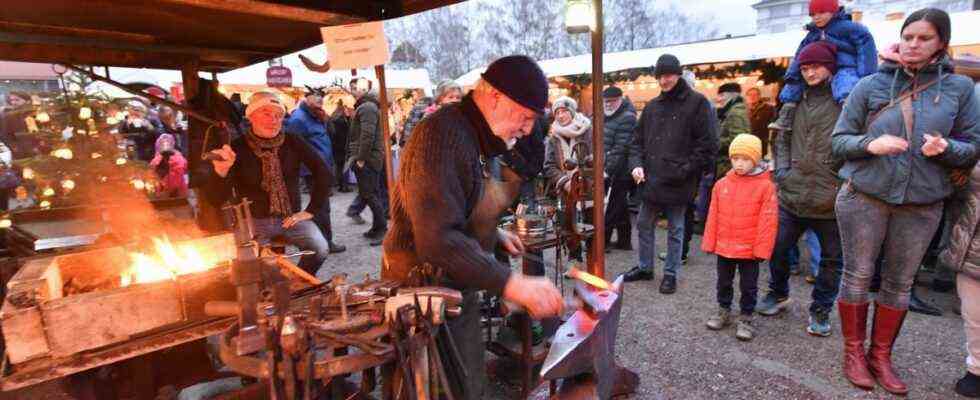So it won’t work again this year. No steaming mulled wine cups clasped by gloved hands, no sausage rolls from which the mustard drips onto the winter jacket. In view of the dramatic Corona situation in the district, the Starnberg district office decided together with the mayors of the communities to cancel all municipal Christmas markets.
The municipalities are currently implementing this decision, and more and more official rejections are trickling in: Starnberg, Gilching and Herrsching, for example, have already announced that no municipal Christmas markets will take place there this year either. Private organizers are also called upon to think about rejections.
Herrsching’s mayor Christian Schiller (independent) hopes that many organizers will follow up on this appeal. “We all have to look together now that we can get through the fourth wave as best we can,” he says. If necessary, there must be contact restrictions again to stop the spread of the virus – the cancellation of the Herrschinger Christkindlmarkt on Monday is a first step in this direction. The municipal council will officially decide the cancellation in its next meeting on November 29th, but the end is already sealed, explains Schiller. The administration has already been asked to “stop the preparations for the Herrschinger Christkindlmarkt 2021 with immediate effect”.
With the cancellation of the Christmas market at the Evangelical Church of the Redeemer, which should have taken place on the third Advent, the aim is to prevent many people from coming together at the same time. Of course, this is currently also happening in many other places, such as pubs, restaurants and clubs. In contrast to the Christmas markets, however, it is possible here to check the applicable rules, i.e. 2 G, 3 G or 3 G plus – how this would have been implemented at the Christmas markets remained open until the end.
“We cannot fence the area and then create entrances where controls take place,” says Starnberg District Administrator Stefan Frey (CSU). “Ultimately, that is not feasible.” Allowing so many people to meet in an uncontrolled manner is “irresponsible” in the current situation. For this reason, too, Frey expects the state government to come up with clear guidelines in the coming days as to how the hygiene concepts should be implemented – or even the cancellation of all public markets in Bavaria.
Candy dealer Stefan Vogler fears an economic catastrophe if the markets are canceled across the board
Since most of the exhibitors at the markets in the district are associations and do not operate their stands commercially, the economic damage is limited for most of them. “Of course it’s a shame anyway,” says Robert Strobl, commander of the Gilching Volunteer Fire Brigade. Here, too, the Christmas market has been canceled, normally the fire fighters would have sold sausages there at their grill stand. On the one hand, the cash registers are filled with the income, on the other hand, the Christmas market is always an integral part of public life in Gilching. That this is not possible again, for the second year in a row, saddened Strobl more than the lost income. “People need social life,” he says. “Especially now, after the last year and a half.” But Strobl was not surprised by the rejection. “We actually expected that,” he says. “It was clear that the pandemic was coming back.” This is another reason why they have not yet made any major preparations for their grill stand. The firefighters always buy their sausages at relatively short notice anyway, so there have been no financial losses.
While in Munich, for example, the plans for the Christmas market in the city center are still being adhered to, more and more municipalities are also canceling their Christmas markets in the neighboring districts. On Monday, Dießen announced that the famous home club market would be canceled. “Due to the dynamic infection process,” the association says on its website that you are unfortunately forced to take this step.
Should more and more organizers follow this example in the rest of the republic as well as in Austria, it would be a catastrophe for Stefan Vogler. The entrepreneur runs a wholesale business for sweets in Inning am Ammersee and supplies large-scale dealers at folk festivals and Christmas markets. The markets that have been canceled here in the district have so far hardly had any impact, he says. However, if there were short-term cancellations across the board, the economic damage would be immense. “That would be even worse than last year,” he says. “We hardly got any help from the state. This year we would probably be alone.”

